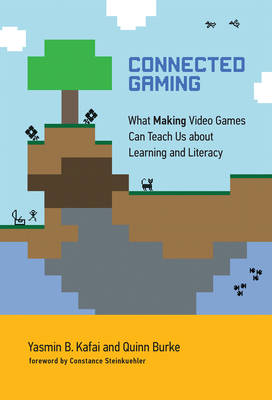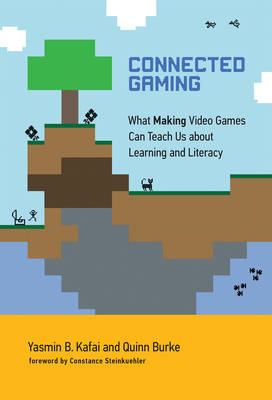
En raison d'une grêve chez bpost, votre commande pourrait être retardée. Vous avez besoin d’un livre rapidement ? Nos magasins vous accueillent à bras ouverts !
- Retrait gratuit dans votre magasin Club
- 7.000.000 titres dans notre catalogue
- Payer en toute sécurité
- Toujours un magasin près de chez vous
En raison de la grêve chez bpost, votre commande pourrait être retardée. Vous avez besoin d’un livre rapidement ? Nos magasins vous accueillent à bras ouverts !
- Retrait gratuit dans votre magasin Club
- 7.000.0000 titres dans notre catalogue
- Payer en toute sécurité
- Toujours un magasin près de chez vous
Connected Gaming
What Making Video Games Can Teach Us about Learning and Literacy
Yasmin B Kafai, Quinn Burke
Livre broché | Anglais | The John D. and Catherine T. MacArthur Foundation Digital Media and Learning
59,45 €
+ 118 points
Format
Description
How making and sharing video games offer educational benefits for coding, collaboration, and creativity. Over the last decade, video games designed to teach academic content have multiplied. Students can learn about Newtonian physics from a game or prep for entry into the army. An emphasis on the instructionist approach to gaming, however, has overshadowed the constructionist approach, in which students learn by designing their own games themselves. In this book, Yasmin Kafai and Quinn Burke discuss the educational benefits of constructionist gaming--coding, collaboration, and creativity--and the move from "computational thinking" toward "computational participation." Kafai and Burke point to recent developments that support a shift to game making from game playing, including the game industry's acceptance, and even promotion, of "modding" and the growth of a DIY culture. Kafai and Burke show that student-designed games teach not only such technical skills as programming but also academic subjects. Making games also teaches collaboration, as students frequently work in teams to produce content and then share their games with in class or with others online. Yet Kafai and Burke don't advocate abandoning instructionist for constructionist approaches. Rather, they argue for a more comprehensive, inclusive idea of connected gaming in which both making and gaming play a part.
Spécifications
Parties prenantes
- Auteur(s) :
- Editeur:
Contenu
- Nombre de pages :
- 224
- Langue:
- Anglais
- Collection :
Caractéristiques
- EAN:
- 9780262551557
- Date de parution :
- 19-03-24
- Format:
- Livre broché
- Format numérique:
- Trade paperback (VS)
- Dimensions :
- 152 mm x 229 mm
- Poids :
- 326 g

Les avis
Nous publions uniquement les avis qui respectent les conditions requises. Consultez nos conditions pour les avis.






